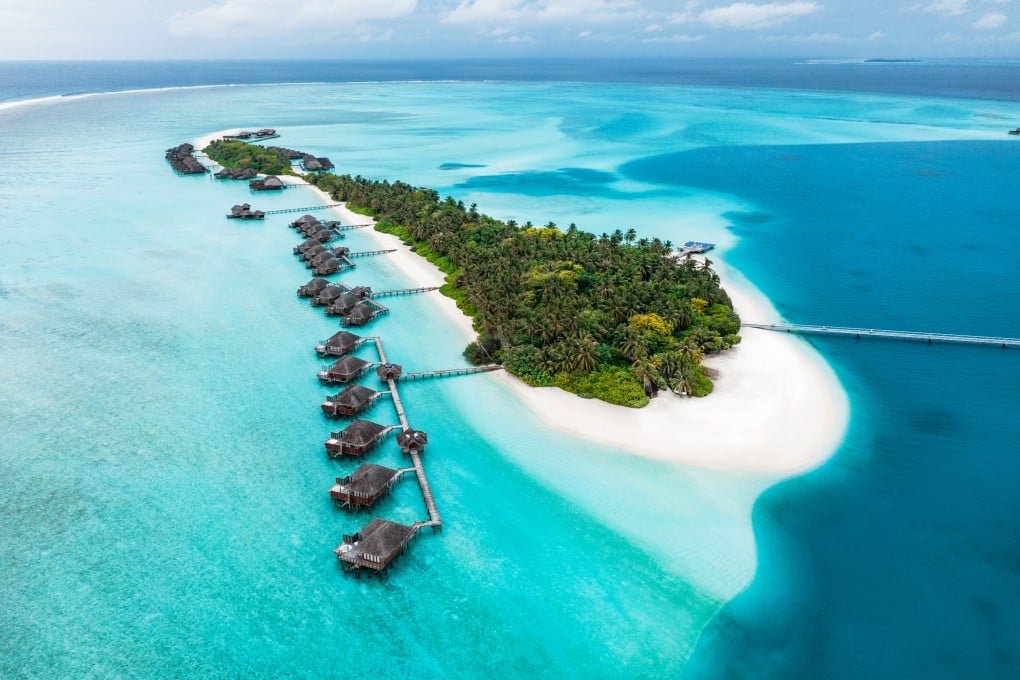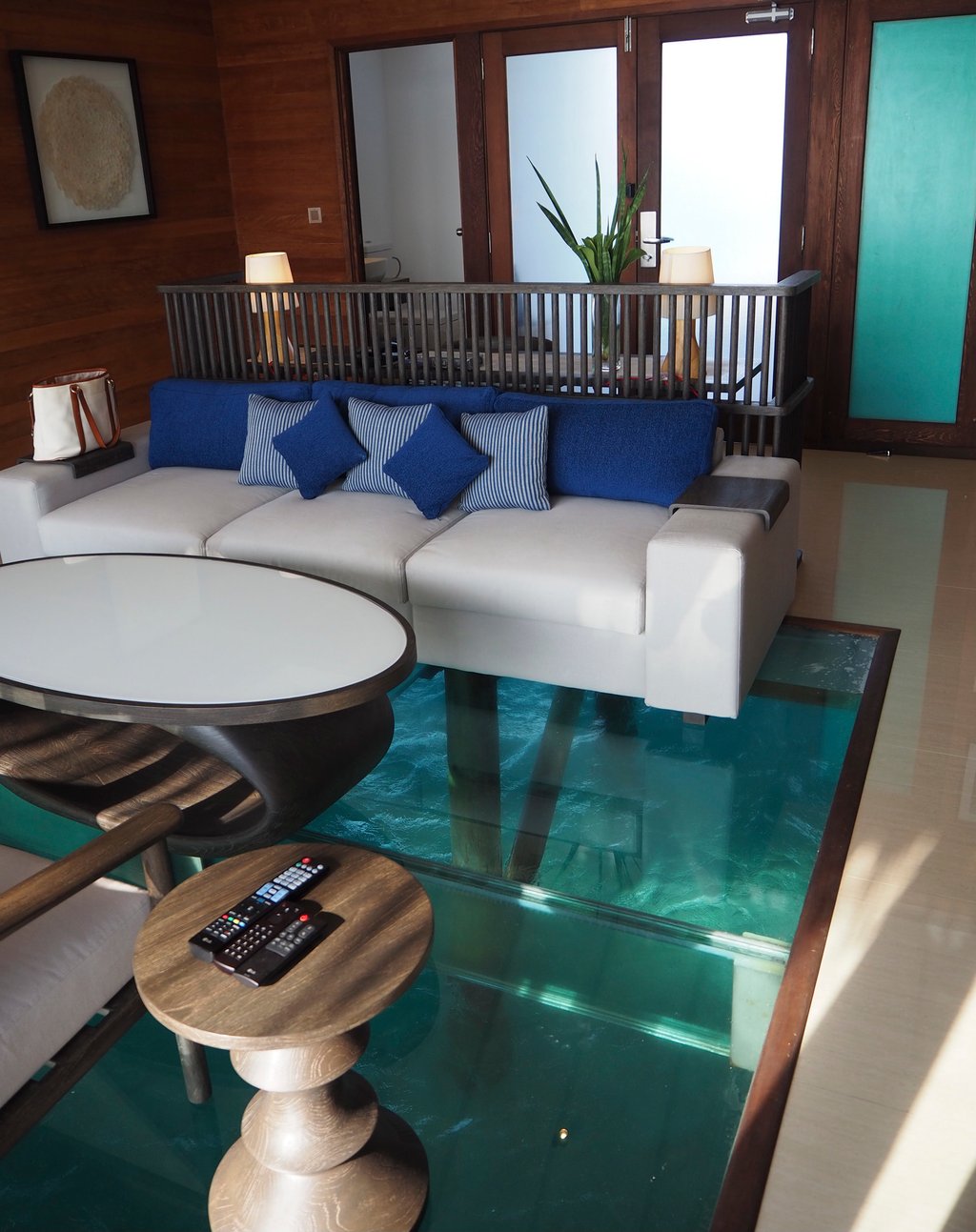Why visit the Conrad Maldives resort? Whale sharks, novel restaurants (one underwater), international chefs and a huge wine cellar
- The newly renovated Conrad Maldives resort is spread over two islands, with luxury glass-bottomed villas and high-end restaurants
- Guests can laze on white-sand beaches, swim in crystal clear waters, and take a trip to spot whale sharks

The Conrad Maldives Rangali Island is a resort straddling two islands (three, if you include the one housing staff) joined by a 500-metre bridge in the South Ari Atoll, a 35-minute seaplane ride from the Maldives’ Velana International Airport.
Currently celebrating its 25th anniversary and the completion of a rolling renovation, this is a resort of firsts.
One island – Rangali, and its oversea villas (the first in the Maldives) – is for adults only. The other, Rangali-Finolhu, has overwater and beach villas for families. Both are natural, rather than man-made, islands, so the vegetation is lush and the birds and lizards plentiful.
Having begun life as the Hilton Maldives Resort and Spa in 1997 – the first resort opened in the island nation by an international chain – the exteriors of the oversea villas have taken on a weather-beaten charm, but the interiors are luxe and well-tended.

If we’re going to be spending a couple of weeks on a remote island, the food had better be good …
Oh, it is. And, with 12 “dining experiences”, there’s plenty of choice.